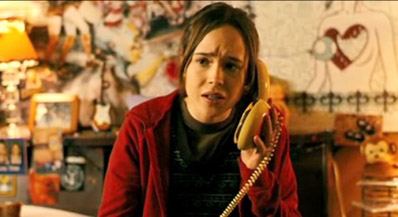|
|
Director's Spotlight: Jason ReitmanBy Joshua PaschSeptember 29, 2010
For full disclosure purposes, I’ll admit my bias for this film. For starters, I was very active in high school debate (New Jersey State Champs, 2005 baby!). The film breaks down the most inherent and unavoidable tenant of debate (and for that matter, of politics, of education, of life), which is that there is no “right” and there is no “wrong.” In a pivotal scene where Nick Naylor has to help his son with his essay on why America has “the best government in the world,” Nick illustrates this concept with the following quip: “Because of our endless appeals system.” He then elaborates that it “…is a bullshit report. There is no best government. There is no measure by which we determine which government is the best. The American government may be the most entertaining, but it is not the best.” He later teaches his son, “See, Joey, that's the beauty of argument. When you argue correctly, you're never wrong.” That is the very principle on which every high schooler who ever participated in Ted Turner, Lincoln-Douglas, or policy debate hinges an argument. Winning or losing doesn’t have anything to do with being right or wrong – it has everything to do with how you frame your position compared to your competitor. Sounds simple now, but when you’re a high school freshman, it takes a little bit for this to sink in. Once it does, it’s the tenet by which you win every argument – whether with your debate opponent or your overbearing parents.
|

|
|
|

|
Friday, November 1, 2024
© 2024 Box Office Prophets, a division of One Of Us, Inc.


